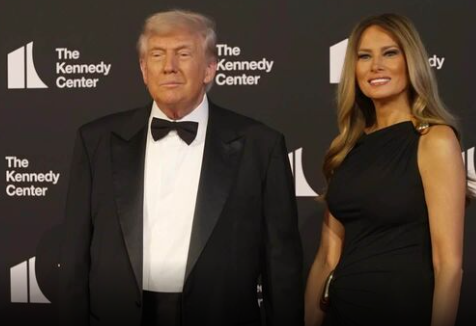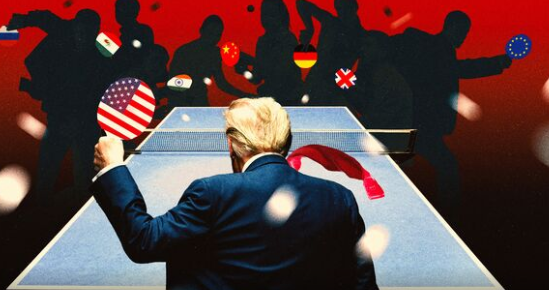US President Donald Trump said that he intends to send letters to trade partners within the next one to two weeks, setting unilateral tariff rates, in order to reimpose higher tariffs on dozens of economies before the July 9 deadline.
Trump told reporters at a performance at the John F. Kennedy Center for the Performing Arts in Washington on Wednesday that “We will be sending letters to various countries in about a week and a half to two weeks, telling them the contents of the agreement.”
“At a certain point, we will send you a letter. I think you understand that this is a deal. You can accept it or reject it,” he added.

It remains to be seen whether Trump will keep his promise. The president often sets a two-week deadline for action, but in the end, he often delays or even takes no action at all. On May 16, the president said he would determine the tariff rates for US trading partners “within the next two to three weeks.”
In April this year, Trump announced that he would impose tariffs on dozens of trading partners. However, due to the sluggish market, investors were worried that the tariffs would trigger a global economic recession. Trump then suspended the tariffs for 90 days. Although negotiations are still ongoing, the only trade framework agreement the US has reached so far is with the UK, as well as a tariff truce with China.

But as Washington and Beijing traded accusations or violated the terms of the agreement, and even the ceasefire with China was under threat, lengthy negotiations were held in London earlier this week on how to implement the agreement.
Trump said earlier on Wednesday that the trade framework with China has been completed. Beijing will supply rare earths and magnets, and the US will allow Chinese students to study at American universities.
On Wednesday, when asked whether he would extend the deadline for countries to reach agreements with their governments before the tariffs take effect, Trump said he was willing to accept.
“But I don’t think it’s necessary for us,” he added.
Trump initially said he would negotiate with all partners, but later abandoned that idea, prioritizing negotiations with some key economic partners and acknowledging that the government lacked the capacity to negotiate dozens of separate agreements. The Trump team is also working to reach bilateral agreements with India, Japan, South Korea and the European Union.
U.S. Commerce Secretary Howard Lutnick said earlier Wednesday that trade talks with the European Union are likely to be one of the last trade deals the United States reaches, expressing frustration at negotiating with a bloc of 27 countries.


